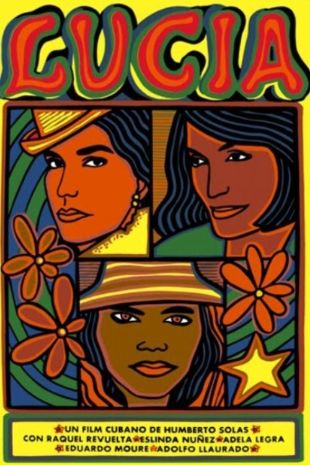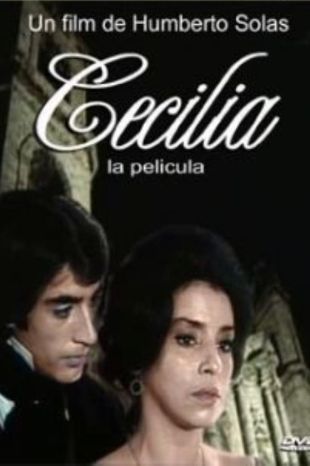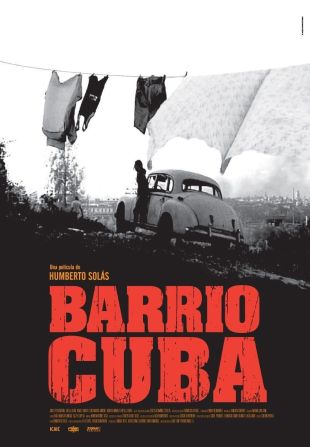Alongside Santiago Alvarez and Tomás Gutiérrez Alea, Humberto Solas ranks as one of the three most esteemed and influential Cuban filmmakers of the 20th century and helped spearhead the Cuban film renaissance via his extensive involvement with the Cuban film board, or Instituto Cubano de Arte e Industria Cinematográficos (ICAIC). Like Alvarez, Solas sought to unify art and revolutionary leftwing politics through innovative aestheticizing techniques; unlike Alvarez, Solas chiefly pursued these goals within the frameworks of fictional narratives in lieu of stylized documentary. Born in 1942 amid economically disadvantageous circumstances, Solas initially planned to study architecture, but these plans came to naught in 1959 when the government shut down the country's universities in light of the then-nascent Castro revolution sweeping through the country. Solas aggressively fought in the revolution and when the Castro government was in place, accepted an offer from the ICAIC to join its ranks on the basis of an exciting short film he had made. Thus, a new filmmaker was born. Thereafter, Solas moved into documentary work for a time, embarking on one of his first major projects, Casablanca (1961) at the tender age of 19. Six features followed, capped off by two seminal and still influential masterworks: the 1966 Manuela -- a dramatization of the Castro revolution -- and the 1969 Lucia, the opus that finally catapulted Solas to international acclaim. This tripartite feature blends revolutionary fervor, sociopolitical insight, and feminist politics as it tells the fictionalized tale of three women, each named Lucia at different points in Cuban history (1895, 1933, and the early '60s, respectively) experiencing political and personal revolution. Solas' genius lay not merely in melding all of the said ideological concerns into engrossing narratives, but in identifying a unique revolutionary visual style to drive each of the segments. The film deservedly picked up one of the top prizes at the Moscow Film Festival, and prompted Variety's Gene Moskowitz to praise, "Director Humberto Solas displays extraordinary filmic erudition and knowhow...[The film] also has some stunning insights into the period and the right visual metaphors...Acting is also incisive and tactfully handled."
This of course marked a dynamite launching pad for Solas' foray into the international film community. Follow-up efforts were equally dynamic and electric, if less influential. He spent much of the 1970s and early '80s cinematically depicting the pushes for revolution in various societies, including Haiti (Simparele, 1974) and Chile (Cantata de Chile, 1975). Cantata earned particularly glorious praise for its inventive narrative and visual bravura in its ability to convincingly relay Chile's transition from conquistador-driven exploitation to the government takeover of various commercial industries. As time passed, Solas revealed increasingly sophisticated dramatic and conceptual tendencies and thus drifted further and further away from the risk of ideological didacticism, even though his political bias remained fixed. The said transitions were most evident via the efforts Cecilia Valdés (1982) and Amada (1984). The former tells of a series of loves and losses of the titular Cuban woman, thrown against the backdrop of the brutality and inhumanity of slavery (including the satanic annihilation of the native Cuban population); the latter revisits Solas' feminist concerns, and his interest in exploring the intersection between the personal and the political (societal), with its period tale of a gentle yet fragile young woman manipulated by virtually every man in sight, at the time of Cuba's sociopolitical corruption during the 1914 sugar cane boom. 1986's Un Hombre de Exito fared even better, critically speaking, than its predecessors; it explicitly recalled Coppola's first two Godfather films, with its tale of the massive personal shifts undergone by two brothers (César Évora and Jorge Trinchet) from the early '30s through the late '50s; one evolves into a violent anarchist, the other into a successful entrepreneur. The anarchist brother "plays both ends" of the political spectrum, which leads to his own imminent destruction; Solas uses the story to address human exploitation and the harm inherent in the attainment of unchecked wealth and power, as well as the danger of blind political allegiance. A number of additional releases followed Un Hombre de Exito, including 1992's El Siglo de las Luces and 1998's short documentary Retrato de la Habana, but two Solas features during the following decade attained greater significance: the 2001 Honey for Oshun -- a critically worshipped drama about a Cuban exile, based in Miami, who embarks on a search for his biological mother and his ethnic heritage -- and the much different-in-tone Barrio Cuba (2005), a droll seriocomedy about several economically strafed Cubans living on the margins of society and their shared need for meaningful personal relationships (romantic and otherwise) and economic sanctity. Variety rhapsodized of Barrio, "this warmly human portrait of a society desperately seeking upbeat moments in relentlessly downbeat circumstances provides an invaluable cinematic record of a city that looks on the verge of collapse," and praised the film's "raw energy." Sadly, Barrio marked Solas' last major work, though most anyone would concur that he left behind an astonishing cinematic legacy shared by few directors. He died of cancer in September 2008, at the age of 66.


